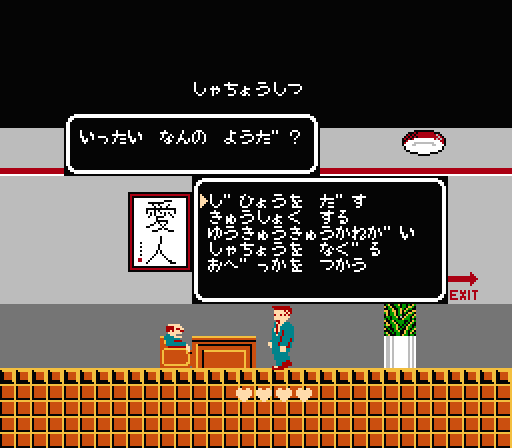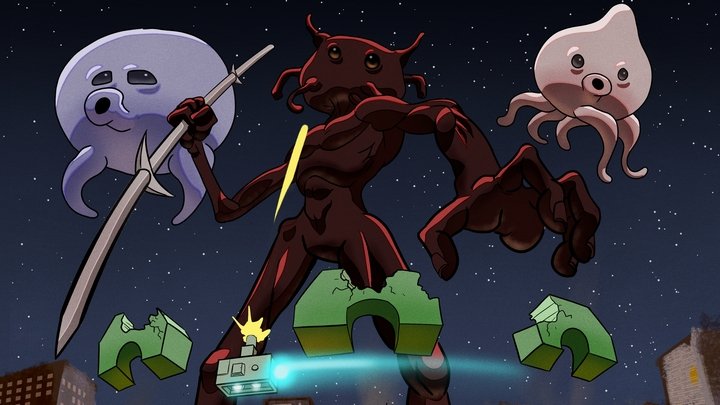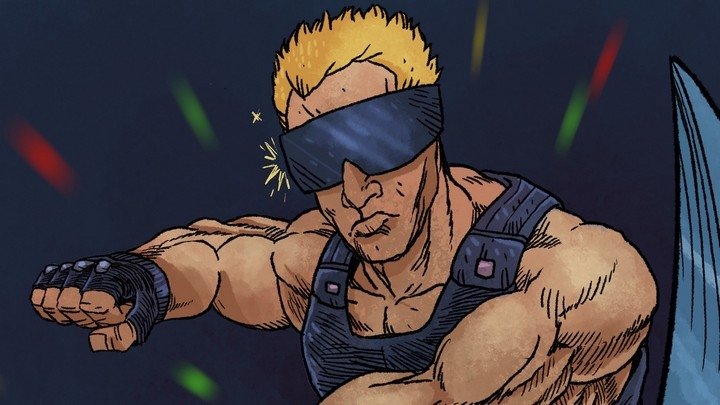Taito Classics dredges up the deepest of cuts
Back in April, Taito's mobile division announced Taito Classics, a line of beloved Taito games coming to Android and iOS. Of course, the Taito that actually made these games dissolved back in 2006 when Square Enix bought them out, but SE have acknowledged the cultural significance of their acquisition, who released such influential titles as Space Invaders and Bubble Bobble, and granted them a modicum of independence. To this day, the wholly-owned Taito Corporation continues producing new games using Taito's intellectual property, released under the Taito brand. Even Taito's arcades have remained up and running in Japan. This approach has largely allowed the public to ignore the fact that the once-great industry giant ever changed hands at all (and it's certainly preferable to the way Konami acquired Hudson only to lock up their library in the same vault where they threw their own games). Now they're leveraging that visibility by bringing games that helped put Taito on the map to modern platforms.
The first game to receive the Classics treatment was Time Gal—which may seem like an odd place to start, but the idea for Taito Classics spun out from plans for a stand-alone release of Time Gal sometime last year, so you could say it deserves the honor. Originally released in 1985, Time Gal was part of a brief trend of arcade games kicked off by Dragon's Lair, where players are presented with a pre-recorded video streaming off a LaserDisc and interact solely by pressing a button when prompted. The right input prompts the video to continue playing or advance to the next vignette, while a wrong choice or missed timing switches the track to a clip of the player character arriving at an ignominious end. With nothing else to do and nothing to differentiate these games except the video itself, the genre quickly ceased to draw crowds once people got the idea.
Even so, these games can still be worth revisiting; they're awfully fun to look at, if nothing else. Time Gal in particular is a lush hand-drawn anime production with a distinctly '80s aesthetic, following a futuristic hero named Reika as she evades peril across a number of questionably researched points in history. The arcade version is a rare sight to say the least these days, and the handful of console ports released over the years have struggled to measure up, quite possibly making the Taito Classics version the one to get. Touch controls are no problem since your interactions with the game are so perfunctory, and while the app's file size weighs in at over a gig, it's a small price to pay for that LaserDisc quality. Three days ago, Taito also updated the game with a gallery of its original production materials, including scripts and character model sheets.
Also three days ago, Taito served up the second release in the Classics line: RayForce, the first in a series of vertical shoot-'em-ups that garnered a dedicated following when the genre died down during the PlayStation era. RayForce was already released on mobile back in 2012, but players who already bought in can gain access to this new version through an update. The Taito Classics release retains all the same features and adds more, such as controller support for those who don't care for the touch screen's handling. While the previous version suffered from an inconsistent frame rate and dropped inputs, this one appears to have solved these performance issues; that by itself makes it worth another look. Taito has already announced their intent to follow up RayForce with its sequels, RayStorm and RayCrisis; the former was also released in 2012, but RayCrisis will be a newcomer to the mobile space. All three games will feature musical tracks arranged by members of Zuntata, Taito's legendary in-house band. Shōhei Tsuchiya has remade RayForce's Area 1 track, "Penetration"; Masaki Mori will tackle RayStorm; and an unnamed, newly joined member of the band will be in charge of RayCrisis.
The last title on the docket is strange even by Time Gal standards: Takeshi no Chōsenjō, the infamously inscrutable Famicom game designed by Japanese celebrity Beat Takeshi. Stepping into the shoes of an ordinary salaryman, your success relies on committing a sequence of inexplicable acts, such as quitting your job, getting into an alleyway brawl, presenting your wife with divorce papers, and singing in a karaoke bar (actually singing, using the microphone in the Famicom's second controller). It's the definition of a game worth more for the curiosity of its existence than for the fun of playing it, but it's relevant at the moment for serving as the subject of Taito's April fool this year: a supposed VR remake for VIPs only, involving a tuxedo wired with sensors, Hollywood makeup artists to paint realistic bruises on you based on how beat-up you get in the game, and Zuntata listening in to personally score your karaoke performance. The bottom of the page parodies the actual game's coda, asking not "Why are you taking this game so seriously?" but instead "Why are you taking this lie so seriously? It's not VR, but the game really is coming out. Announcing Takeshi no Chōsenjō's release as a Taito Classics app!" So it basically gets a spot on the lineup in return for introducing Taito Classics to the world, although producer Nikkō Yamashita is having fun figuring out how to make the game work on mobile. The karaoke bit is taken care of thanks to microphones in devices, but only time will tell how they'll pull off the part where you have to go an hour without touching the controls on a device that puts itself to sleep after a minute.
 Your options in this scene include "request PTO," "tender resignation," and "punch the CEO."
Your options in this scene include "request PTO," "tender resignation," and "punch the CEO."
With regards to overseas releases, Yamashita is hopeful for Time Gal. Only the Sega CD port ever got a localization with English voice acting, and that was handled by Telenet (via Wolf Team) rather than Taito themselves. Still, he hasn't ruled out a release outside Japan even if it means recording a new dub for a thirty-year-old game. He's less certain about bringing Takeshi no Chōsenjō to countries that lack the historical context to appreciate its quirkily hostile design, not to mention the extra effort that would be required to localize the Japanese Caesar cipher the player must puzzle out at one point. As for RayForce? Thanks to the universal language of shooting games, it's available right now, and RayStorm and RayCrisis are sure to follow.
RayStorm is due out before the end of spring, and RayCrisis and Takeshi no Chōsenjō are scheduled for summer. No more titles have been announced yet, but it's safe to say Taito Classics will continue well beyond these five games. Taito's back catalog is nothing to sneeze at, and they've already shown they won't constrain themselves to games of any particular origin. Takeshi no Chōsenjō is a Famicom game, and while Time Gal and the Ray trilogy are all arcade games, each one of them was developed on different proprietary hardware, from the LaserDisc-based LG System to the polygon-pushing G-NET board. Yamashita has said he wants to conduct a survey on what titles people want to see, and it's exciting to know a game's original platform needn't be an excluding factor. Everything from Raimais to Psychic Force is potentially on the table. It's a good time for reissues of classic games in general, from M2 Shot Triggers to Hamster Corporation's Arcade Archives series, and hopefully we'll see Taito Classics develop a selection as prolific as the best of them. And for those of you lamenting that it's all going down on mobile, Yamashita has noted the possibility of extending the series to PC and consoles at some point down the line. Don't go getting your hopes up...but don't lose the faith, either.
Time Gal image courtesy of Hardcore Gaming 101




